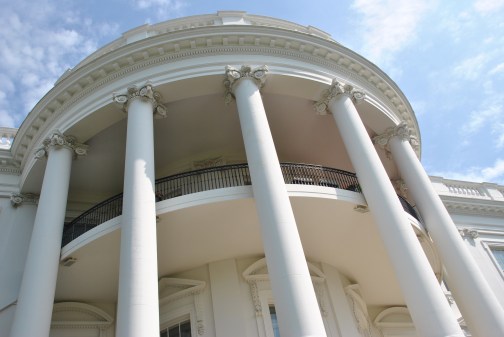To fight climate-linked health risks, White House turns to data
The Obama administration announced Tuesday a series of data-focused initiatives aimed at combatting health problems brought on by climate change, pulling in a host of top tech companies to help protect the most vulnerable parts of the population.
Companies such as EMC Corp., Esri, Google and Microsoft are working with the federal government, using vast troves of federal health, climate and geospatial data to create ways to analyze geographical changes that can lead to health problems as well as predict what diseases will accelerate with certain environmental changes.
“We know that climate change is not just a matter in the rise of air temperature of the planet,” said John Holdren, director of the White House’s Office of Science and Technology Policy, during a panel discussion. “It’s a little bit like the temperature of your body, an index of the state of a complex system. We know the changes we are seeing are putting vulnerable populations at risk.”
Along with private sector help, the administration also announced a litany of upcoming workshops, summits and challenges tied to the health effects of climate change. Later this spring, the White House will hold its “Climate Change and Health Summit,” where Surgeon General Vivek Murthy will meet with public health officials to identify opportunities to lessen climate change’s impact on public health.
Also announced was a health data challenge sponsored by the Department of Health and Human Services; climate and health data hackathons during the National Day of Civic Hacking in June; and a pilot from the White House, Centers for Disease Control and Prevention, and Defense Department that aims to forecast epidemics of dengue fever.
During Tuesday’s panel, Este Geraghty, Esri’s chief medical officer, said the use of federal data is crucial for the public and private sectors when it comes solving the health problems brought on by climate change.
“We need to look at tools that integrate many types of data, from Landsat data to public health information to demographic information and so much more,” Geraghty said. “Taking a geographic approach is powerful. Geography as a science not only provides us with content and context to our world; it provides a framework for understanding.”
Allison Lieber, a program manager for Google Earth Outreach and Google Earth Engine, demonstrated before the panel ways in which the company is using open federal data to track actions that contribute to climate change, including deforestation and methane emissions as well as the company’s own geospatial platform that predicts disease outbreaks.
One such model uses data collected from National Oceanic and Atmospheric Administration and NASA satellites to measure the outbreak of fires around the world.
“Health and climate change is a very large-scale problem that’s going to demand a large-scale solution,” Lieber said. “It’s the collaboration of resources: From the government through its open data policy, we have vast public data. If you use cloud computing from the private sector companies and put it in the hands of the world’s leading scientists, they would be able to unlock the value of this data for public good and drive knowledge of it that’s timely, detailed and really relevant to these issues.”
Dr. Linda Rudolph, who leads the California-based Public Health Institute’s Center for Climate Change and Health, said any solution the data helps uncover will be pivotal in addressing this problem.
“Climate change is the defining health challenge of this century,” she said. “This is an existential threat, not just for polar bears, but for us.”





